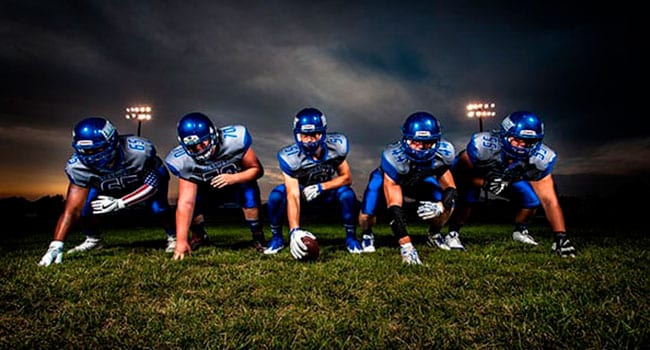 The College Football Playoff (CFP) championship game recently generated millions of dollars for the National Collegiate Athletic Association (NCAA) in the United States, the universities involved and their media partners.
The College Football Playoff (CFP) championship game recently generated millions of dollars for the National Collegiate Athletic Association (NCAA) in the United States, the universities involved and their media partners.
The players who put on a great show of athleticism?
Well, they probably got a nice steak dinner.
Alabama, Clemson, Oklahoma and Notre Dame made $6 million for themselves and their conferences by being selected for the CFP (all figures in U.S. dollars).
Since Notre Dame is an independent, that school got to keep the entire $6 million for itself.
The Southeastern Conference (SEC) will give Alabama more than $4 million for playing in the championship game.
Clemson’s take will be less because the Atlantic Coast Conference (ACC) distributes bowl and playoff revenue equally among member schools, but it will still be a multimillion-dollar payday.
Moreover, data from fiscal year 2017, based on what each university reported to the NCAA, showed Clemson with $52.3 million in total football revenue for the year and Alabama with $108.2 million in total football revenue. Clemson’s revenue will get a boost next year with the launching of the ACC Network, which could be worth an additional $15 million to Clemson.
The head coaches in the championship game are certainly getting rich. Dabo Swinney of Clemson and Nick Saban of Alabama made nearly $20 million a year between them this season.
Meanwhile, the NCAA is also getting rich. The organization that oversees college athletics broke the $1-billion mark in annual revenue for 2017. That’s just the NCAA as an organization. The revenue for college sports as a whole, including conference and individual university athletic department revenue, is in the multi-billions.
The NCAA doesn’t pay federal taxes because the government considers it a non-profit, same as the Red Cross and the American Cancer Society.
The NCAA a non-profit?
I’ll wait while you finish laughing.
Bottom line: This is simply a rotten system that screws the players.
Some people claim the players will get their big payday when they go to the National Football League. But as good as Alabama and Clemson are, only a relatively small percentage of the 85 or so players on each team will get an NFL paycheque. For the majority of these college football players, their only chance to make money from their football talents is now, while they’re in college making millions for their schools and conferences.
But the NCAA’s draconian amateurism rules prevent that.
Things could be about to change for the players, however.
A federal judge could issue a ruling in a lawsuit brought by more than 40,000 current and former college athletes in the coming weeks. The class-action case, called National Collegiate Athletic Association Grant-In-Aid Cap Antitrust Litigation, went to trial late last year.
The players (plaintiffs) in this case seek a ruling that would abolish NCAA rules capping compensation for athletes at the value of a college education. They want conferences to be able to set their own rules on compensation.
Supporters of the current system say a free college education is nothing to scoff at. And that’s true. It has great value for those athletes who take college seriously. But just because college athletes have the opportunity to get a free education doesn’t mean they’re being compensated fairly.
Studies have shown that football and men’s basketball players at schools in major college athletic conferences have missed out on billions in fair market value over the past decade.
“I can’t think of any other business where there’s such a transfer of wealth where there is in this case; where the student-athletes are basically powerless, and everyone else in the system is benefitting,” said Steve Berman, lead attorney for the athletes in the lawsuit.
Me neither.
In the name of fairness and economic justice, here’s hoping the judge in this case puts a kibosh on the sham known as college amateurism.
Ken Reed is sports policy director for League of Fans (leagueoffans.org), a sports reform project. He is the author of The Sports Reformers, Ego vs. Soul in Sports, and How We Can Save Sports.
The views, opinions and positions expressed by columnists and contributors are the authors’ alone. They do not inherently or expressly reflect the views, opinions and/or positions of our publication.
© Troy Media
Troy Media is an editorial content provider to media outlets and its own hosted community news outlets across Canada.

